Hi, everyone!
We would like to thank Norma and Erzsébet for their donation to the site. We are trying to meet our goal, $300, for the renewal of the site’s hosting to keep it open. If you would like to donate you can click on the donation button on the right side bar (if you are on desktop) or below this post (if you are on mobile).
Kino Rex Bern in Switzerland is hosting a Cate Blanchett Retrospective from June 29 to August 30. Chichester International Film Festival (August 4-27) will also have a retrospective on Cate, the programme will be announced on July 17.
Cate will be participating in a series of Q&As for The New Boy on the weekend and while we are waiting, some interviews from the Australian press have been published.
Cate Blanchett Retrospective
If you would like to watch Cate Blanchett films on the big screen this is your chance as Kino Rex Bern and Chichester International Film Festival host their respective Cate Blanchett Retrospectives this summer.
Her international breakthrough came with Elizabeth in 1998, and since winning the 2014 Oscar for her stunning portrayal of a jaded high-society diva who falls over her husband’s rotten stock market deals, Cate Blanchett has been considered one of the most fascinating actresses of her generation. In our summer retro we show 15 films from all creative periods, from early Oscar & Lucinda (1997) to Tár (2022). They impressively demonstrate the almost uncanny effect of the 53-year-old Australian’s changeability in her controlled perfection.
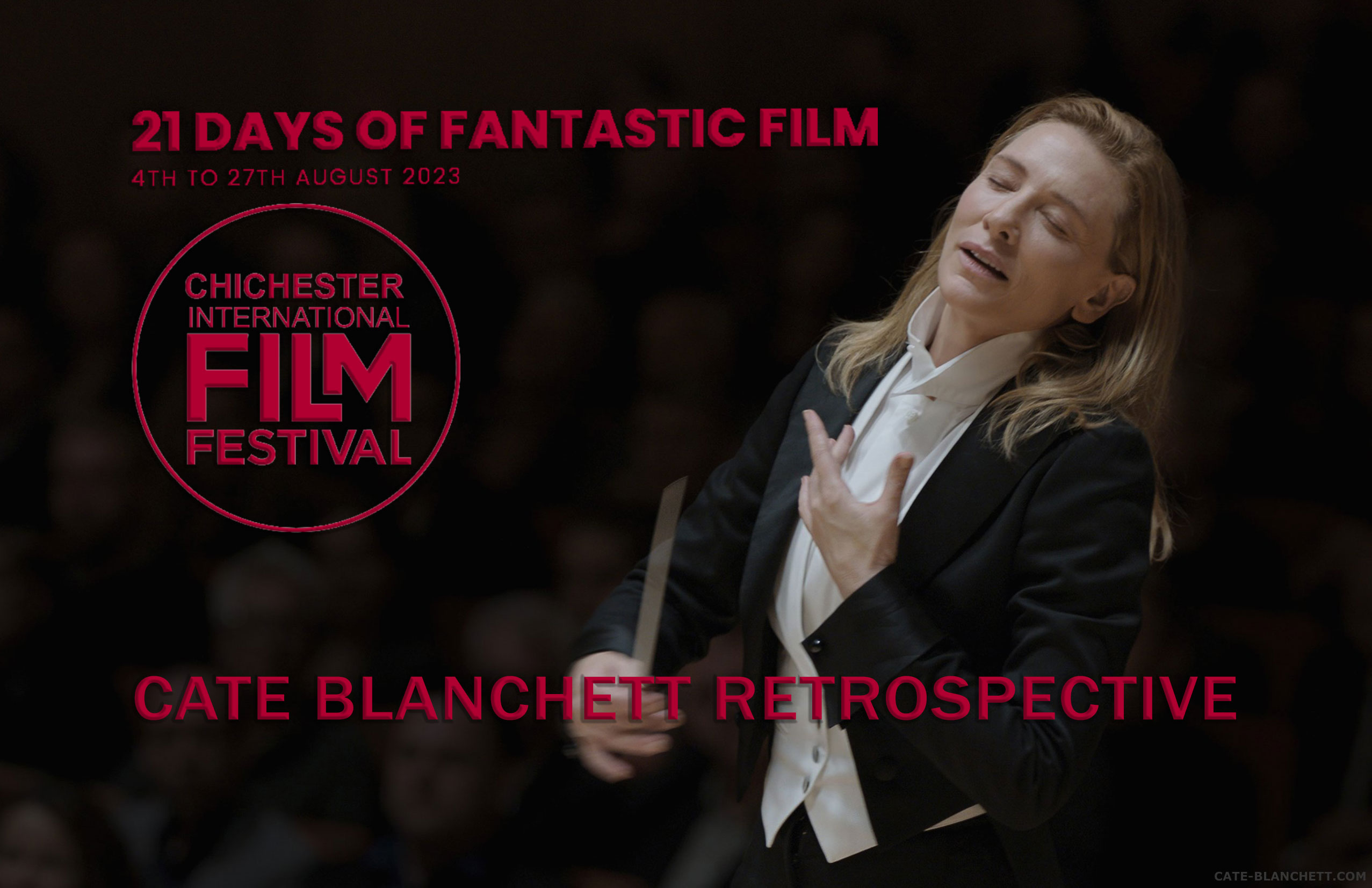
Chichester International Film Festival will have special retrospectives that include Cate Blanchett. Full festival programme will be announced on July 17.
The New Boy Interviews
Cate Blanchett on faith, work and being the only woman in the room
I’m always trying to get out of acting,” says Cate Blanchett breezily. “I’ve been trying to get out of acting my entire professional life.” Blanchett, 54, is speaking at Women in Motion, an event sponsored by a luxury fashion conglomerate at the Cannes Film Festival. Even when she and Andrew Upton – playwright, screenwriter and her husband of 25 years – were running the Sydney Theatre Company, she says, she would watch the actors of plays she had directed come on stage while she retired to the auditorium with “profound relief” that, at least for tonight, it wasn’t her up there. It isn’t the first time she has said something along these lines, but it sets the audience back on their expensive heels. What could she mean? Cate Blanchett never seems to stop working.
The point she is making, however, is that she wants to do – is doing – so much more, both away from the business altogether. She is a committed advocate for humanitarian causes and various cultural bodies – and, increasingly, a producer of the kinds of films she wants to see made. For her, acting has never been about the role, she says. “For me, it’s about the conversation. And sometimes that conversation involves me being in front of the lens and sometimes it’s back behind.” Where, she admits, she is sometimes “a little bit too bossy”.
Blanchett’s primary purpose in Cannes is to support the result of her latest collaboration, The New Boy. Screening in the section of the festival’s official program dedicated to singular voices, Un Certain Regard, The New Boy has its roots in director Warwick Thornton’s own experience as an Indigenous student in a Catholic boarding school. Blanchett plays Sister Eileen, a stoically determined nun running an institution for orphans in South Australia’s remote and punishingly dry hinterland in the early 1940s. Nobody in the outside world has realised that the priest in charge of this mission school has actually been dead for more than a year. If a letter arrives for Father, Sister Eileen answers in a priestly voice. Delivery men are told he is indisposed. There is a war on. Assisted by an Aboriginal nun (Deborah Mailman) known simply as Sister Mum, and a general handyman, George (Wayne Blair), Sister Eileen is clearly holding onto the hope that they will never be rumbled.
Aswan Reid, who lives in Alice Springs but comes from a remote community, brings a presence to The New Boy that is indeed miraculous. He was also singularly unaffected by Blanchett’s status as cinema royalty. “He very much knows how to annoy her,” says Thornton with a grin. “Between scenes he would be pulling her hair and trying to wipe her make-up off. She’s way too strong to be humbugged by some little brat, you know what I mean, but he would still try to push all her buttons. Then, as soon as the first assistant director said “standing by”, he would just go completely into his New Boy persona and off they’d go.”
Edith, the youngest of Blanchett’s four children, stayed on location with them. “She and Aswan were running around,” Blanchett remembers. There were eight other children, playing Sister Eileen’s assorted charges. “I must say, I approach a set with trepidation when I know there are going to be children on it,” says Blanchett. “There’s a duty of care, obviously, but also there are going to be limitations on what one can do, because often filming can be freewheeling and a bit chaotic, but they were absolutely extraordinary. Extraordinary. The level of support they showed to Aswan, their discipline, their curiosity, but also they were just so alive to the situations.” Thornton gives her a sidelong look. “It’s so beautiful, the way you talk about it,” he says. “What I saw every morning was Lord of the Flies.”
They are quite a double act, the patrician Blanchett and dry-as-chips Thornton. They met briefly for the first time at a Berlin Film Festival party in 2020 when they were both at Berlinale Series with Australian television dramas: Blanchett with Stateless and Thornton with Mystery Road. Blanchett had been following Thornton’s career with enthusiasm since he won the Cannes award for a first feature with Samson & Delilah in 2009. “And then in lockdown I started thinking, as did Andrew, who do I really want to work with?” she says. “And we’re thinking about home and about Australia and Australian filmmakers. And I was: ‘yeah, I didn’t get to talk to Warwick long enough’.”
She called him in what became the first of a succession of long, late-night conversations, during one of which he mentioned a script he had written 18 years earlier and stuck in a drawer, knowing it needed “kicking around”, as he puts it. The story told in that early script was very different – for a start, Sister Eileen’s character was a male priest – but Blanchett sensed it was “a thorn in his paw”. When he sent it to her, she and Upton read it in a single sitting. “And we found it really mysterious; there was something there which we didn’t quite understand, but we knew it was a document from which you could make an amazing film.”
Faith is a tricky subject to tackle in a cynical age. “I struggle with it every day,” says Thornton. “Science saves my life every day, but maybe it’s faith that gets me up in the morning, you know what I mean?” He has no idea what is out there. “And I don’t want an answer. I will spend the rest of my life looking for signs and have a great time with spirituality and believing and waiting for all my beautiful friends who died to visit me from the other side. They never do, but I’m still waiting.” And why not hope? “We’ve become a very literal species,” says Blanchett. “I’m a big believer that two opposites can co-exist and that, in fact, you can’t have faith without doubt.”
The project came to Blanchett and Upton at exactly the right time. Three years ago, they joined forces with Coco Francini, an independent American producer Blanchett met while making the limited series Mrs America, in which she played Phyllis Schlafly and also served as an executive producer. They are now working together as Dirty Films, with 15 films on their slate. Three – including The New Boy, Iranian-Australian director Noori Niasari’s Sundance award-winning Shayda and a sci-fi romance called Fingernails by Greek director Christos Nikou – launch this year. Blanchett is taking a break from acting to promote them. “I’ve always been interested in that wonderful American phrase, the process from soup to nuts,” she says. “From the development process right through to marketing. To me, that just feels like an extension of my work as an actor.”
She has thought about directing herself. “I get asked a lot, but for me there are so many things I find enjoyable in the process of making a film, so many directors who I want to work with as an actor and producer, and it takes a long time,” she says. “I’m slow as an actor. I’d be triply slow as a director. I also have four children and a garden. I know this is a cliche, but you do learn patience from gardening – and that is something I need to learn.”
Besides, she is busy; it is hard to say no to a good idea. “I do way too much. Sometimes you do need to be quiet.” Woe betide the person, however, who suggests she could pick and choose because she doesn’t really need to work. “Oh yes, I do!” she barks. “You don’t want to see me when I’m not working!” But has anyone ever seen that? I really doubt it.
Warwick Thornton and Cate Blanchett on their long-awaited collaboration
Eighteen years ago, Thornton wrote a first version of The New Boy, featuring a Benedictine monk, which he says “came from a place of anger”. Thanks to Blanchett’s involvement, his passion project came back to life.
“There was a spark in this a long time ago, and I’d forgotten what that spark was. [But] because of you coming along,” he says, gesturing to Blanchett, seated by his side, “it was one of those beautiful things where suddenly the universe goes: Now is the right time.”
Thornton says the pair began discussing the project during the pandemic, after Blanchett phoned him, saying, “Life is too short, I really want to make a movie with you.”
“I had read [the script] and thought, ‘Oh, well, maybe this is just something that [my production company] Dirty Films can help facilitate. There’s nothing for me, necessarily,'” Blanchett recalls.
“Then we got talking about, ‘What if the priest were a nun?’ In a way, that darkness or residual anger that may have hung over the project in its genesis, seemed to evaporate into sort of a greater benevolence.”
Over the course of the film, Sister Eileen questions her own faith and conduct, drawing her and the New Boy closer together.
“I connected to the script, even though it’s so far away from my experience, anything I understood,” says Blanchett. “You have to find those points of connection.”
For Thornton, there was never any question about the A-list actor fitting into his world: “It was more, ‘Shit, will she expose me as the village idiot that I actually am? The daydreamer, the off-with-the-pixies storyteller, rather than the perfect soundbite filmmaker,'” he jokes.
“There were certainly times on set when I felt I wasn’t worthy to direct her, because she’d ask questions I did not have answers for. And part of who I am is my honesty, and that’s important to me, so the answer that she would get is, ‘I actually don’t know, Cate, why that part of the scene is there. I wrote it, and I actually have never asked myself that question.’
But it’s beautiful, it’s part of the journey of making movies, that you don’t understand and there’s certain things that you haven’t thought about, even though you’ve written your own bloody script.”
Reflecting on the part she played in shaping the story, Blanchett says: “There’s a sense that actors are somehow passive objects to be moved … [But] when you have those conversations, asking questions about your character, or the circumstances of a story, the director gets an opportunity, I think, to work out what it means to them in the present. Because it’s so hard to imagine this by yourself.”
In the film’s press notes, Thornton is explicit about the message of his film:
“It’s like any Indigenous person through the last 250 years of colonisation. Your lore, your culture and everything has just been completely obliterated to extinction in a strange way. You have to adapt in this new world that is like a plague, like a virus that has completely taken over your life and shut down everything that you’ve believed in. Humans are able to adapt very quickly to survive in any situation, in any environment, in any landscape. In a strange way, that’s what the New Boy is. He’s not judging anybody. He’s just surviving.”
Cate Blanchett’s leap of faith
Blanchett was at the Cannes Film Festival with Thornton for the film’s world premiere. She and her husband, Andrew Upton, are co-producers of The New Boy, and were instrumental in getting it off the ground. Through discussions between them and Thornton about the screenplay, the central character – a monk in earlier drafts – became Sister Eileen.“The first time Andrew and I read it, we were really compelled by it,” Blanchett recalls. “We thought this is really mysterious; there was something unknowable in it. It also sparked a really interesting conversation about the story’s potential, like, what if the nun was a priest, and what consequences would that have not only for the narrative, but for the relationship between the other characters and the idea of having a dark secret that they all share in this remote monastery.”“The script was a little bit numb and dull, and then suddenly Cate came along and tried to set it on fire,” Thornton says. “By her doing that, we kind of created a new film.”“Sister Eileen is an amazing voice, the voice of God,” he adds. “But she’s in a space where there are cracks beginning to appear in her own faith. So she’s a more porous religious entity, and more available, I think, to what you know. She’s hoping for a miracle in a way. And I suppose the tragic thing is she thinks the new boy might be it.”Blanchett says: “The interesting thing about organised Western religion is that it’s about the beyond, whereas Indigenous spirituality invariably is connected to now and place. So with organised religion there’s often an avoidance of place, which I think is bizarre.”“I suppose the thing I find tricky about organised religion is that it expels doubt and preaches certainty. And I think that’s the space that you find Sister Eileen in. They’ve got this collective dark secret, which we have as Australians – you know, the country has been colonised, but we don’t talk about it, we hide it behind the back shed, and we all get on and pretend it’s not happening.“Then into it comes Indigenous spirituality. So how do we reconcile those two things?”In some ways the film is about rites of passage, when children grow into adulthood.“It’s really painful and it’s riddled with mistakes,” Blanchett says. “Watching my children go through it, it feels brutal somehow. I think that we try and protect our children, which is an innate instinct, but the world can be a cruel place and that’s what I found interesting in the movie, that it all takes place in this one location, a secluded monastery, but yet, what is going on? There’s quite a lot of psychological and spiritual turbulence. I think that I would not want to be in my teens again.”Now based in Britain, Blanchett says she misses Australia “intensely”.“I think that’s what provoked these long, rambling conversations with Warwick during the pandemic,” she says. “When you live outside Australia, you never leave it. It’s too magnetic. Invariably, as someone who works in the performing arts, in the cinema – Australians are welcomed all over. But we’re always talking about when can we go home. I was really missing it and longing to reconnect with it, but suddenly with everything locking down, I couldn’t go back.”Blanchett’s conversations with Thornton were like a lifeline. “They were not just about Australia, specifically, but also about the land struggle, the struggle with the connection to the Earth. Eventually the film was sort of a godsend because to go back to South Australia, where we’d filmed Stateless, was really fabulous.”
Sources: Chichester, SMH, ABC, The Australian
 Welcome to Cate Blanchett Fan, your prime resource for all things Cate Blanchett. Here you'll find all the latest news, pictures and information. You may know the Academy Award Winner from movies such as Elizabeth, Blue Jasmine, Carol, The Aviator, Lord of The Rings, Thor: Ragnarok, among many others. We hope you enjoy your stay and have fun!
Welcome to Cate Blanchett Fan, your prime resource for all things Cate Blanchett. Here you'll find all the latest news, pictures and information. You may know the Academy Award Winner from movies such as Elizabeth, Blue Jasmine, Carol, The Aviator, Lord of The Rings, Thor: Ragnarok, among many others. We hope you enjoy your stay and have fun! 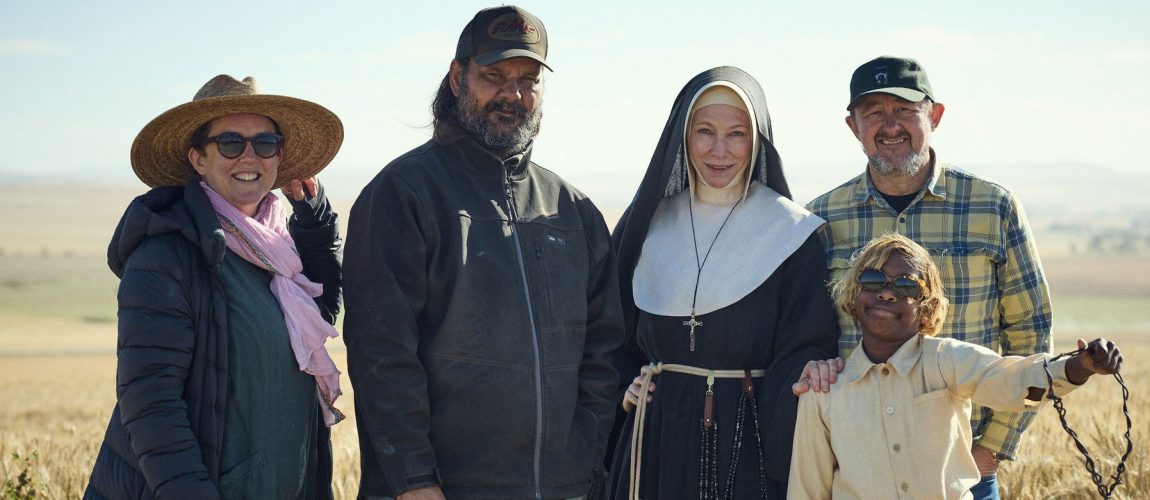
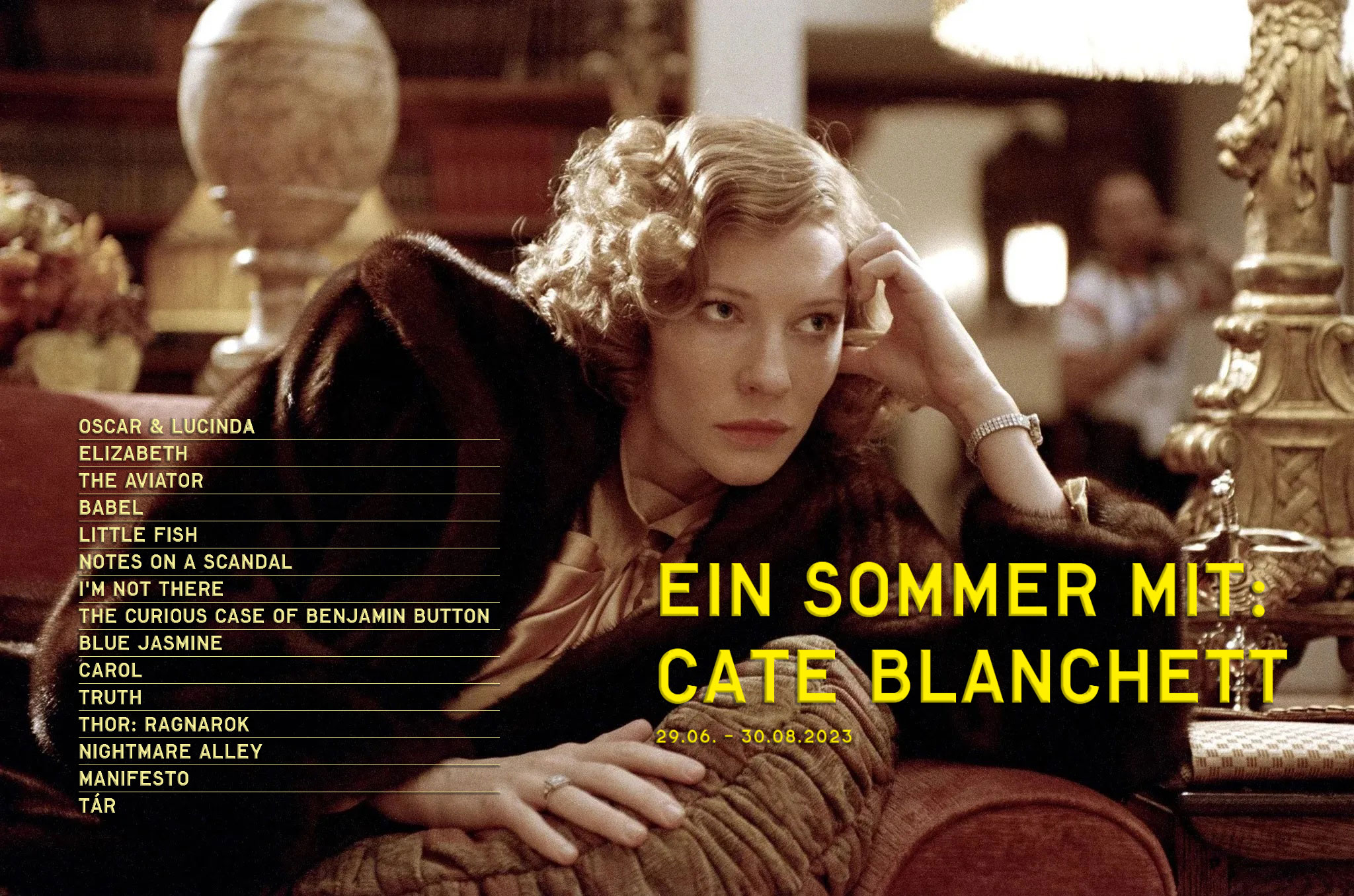
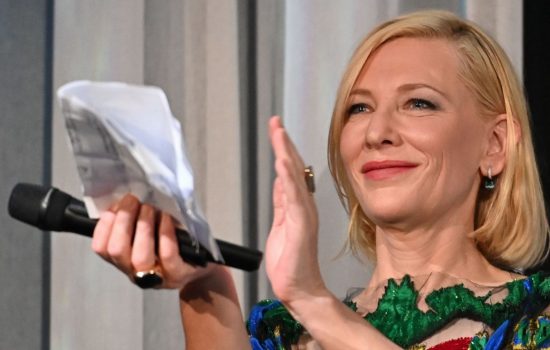
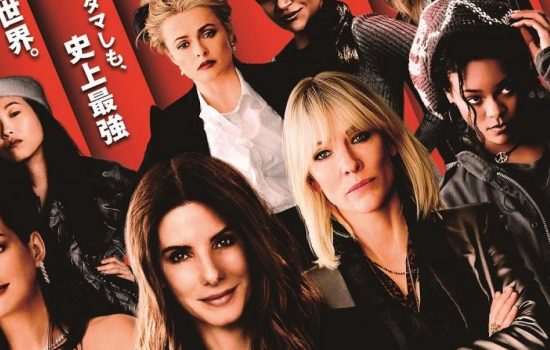

 Black Bag (202?)
Black Bag (202?) Father Mother Brother Sister (2024)
Father Mother Brother Sister (2024) Disclaimer (2024)
Disclaimer (2024) Rumours (2024)
Rumours (2024) Borderlands (2024)
Borderlands (2024) The New Boy (2023)
The New Boy (2023)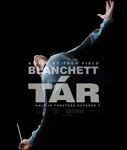 TÁR (2022)
TÁR (2022)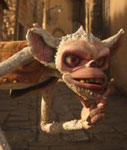 Guillermo Del Toro’s Pinocchio (2022)
Guillermo Del Toro’s Pinocchio (2022)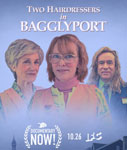 Documentary Now!: Two Hairdressers in Bagglyport (2022)
Documentary Now!: Two Hairdressers in Bagglyport (2022)












